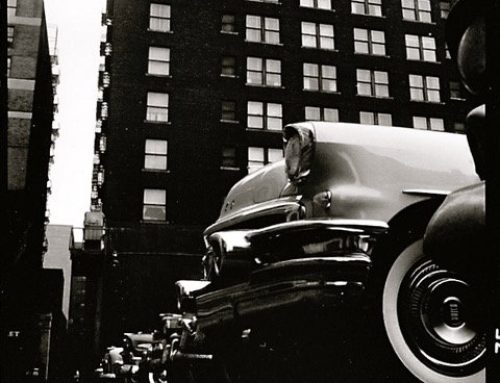You’d think Detroit’s cannabis advocates would be thrilled at the recent announcement that 62 medical marijuana dispensaries will be allowed to continue operating in the city while they await approval from the state. But for many, even if it is a reprieve, it’s just another turn in what’s increasingly become a bureaucratic morass for the medical marijuana industry in Motor City.
After all, it was 10 years ago that Michiganders voted to legalize medical cannabis. Before the state recently decided to heavily regulate and tax the industry — the state only started accepting applications for dispensary licenses last month — and before Detroit decided to start restricting where dispensaries could operate, there were well over 200 pot shops operating legally across the city.
It was spring 2016 when photographer Dave Jordano took notice of the little green shops dotting the Detroit landscape — in formerly vacant buildings, and in neighborhoods with otherwise little to no economic development going on. A cultural documentarian, Jordano says he was intrigued by the “idiosyncratic value” of the storefronts, with their stoner branding mixed with the promise of legitimate medical relief — and so he started to document them.
“It was an intensive project,” says Jordano, explaining that he was stunned by the sudden preponderance of these pot shops. “For four months, it’s all I concentrated on. I only stopped when I couldn’t find anymore.”
Then, in the summer of 2016, the city started acting on a City Council ordinance passed earlier in the year, which restricted where dispensaries could operate. If you were 1,000 feet from a school, a daycare, a park, a church, or a liquor store, or 2,000 feet from another pot shop, you’d be shuttered. In 2017, when Jordano went looking for the shops he’d documented the previous year, most of them were gone.
“Out of the roughly 250 that existed, they killed about 200 of them,” he says, exasperated. “It’s sad because a lot of them were African-American entrepreneurs trying to make a living, and trying to help people at the same time. And many of these shops were in buildings that would otherwise turn to blight.
“But for a year or two it was the Wild West,” recalls Jordano. “And then poof, it just evaporated.” —Jordan Heller







So… I could be wrong, but is “The Grass Station” the same gas station that was used for filming in Detroit Unleaded? Looks pretty close.
Could be. It’s on the corner of E Grand Blvd. and Beaubien.
With the legalization of RECREATIONAL pot in California, this is the big issue right now here. I know a retailer (former wine shop owner) who sold his shop and “retired” to the California foothills to be a…farmer. 🙂 The electorate of his rural foothill county turned out the old Board of Supervisors, and they have now banned commercial cannabis production!